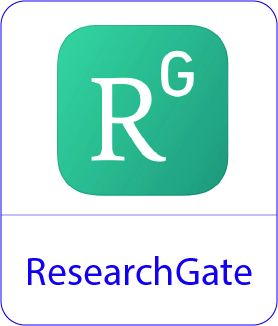Islam Guides Life in the Light of the Qur’anic School"
DOI:
https://doi.org/10.51930/jcois.21.2024.79.0069Keywords:
Islam, Qur'an, life, Islamic identityAbstract
In addressing the issue of guiding human life in light of the noble Qur'anic teachings, one may inquire: Does the Qur'an provide sufficient and appropriate constitutions and systems to direct human life through its blessed verses, thereby addressing life’s affairs within specific Qur'anic frameworks? If the answer is "yes," the research at hand could explore several key aspects of this subject, including: the comprehensive package of laws and programs that Islam offers to regulate all facets of human life, encompassing worship, transactions, ethics, and politics. The establishment of a unique human model that achieves happiness and success in both this world and the Hereafter. The emphasis on noble human values, such as honesty, justice, compassion, and tolerance. The opposition to injustice and corruption, promotion of equality among people, and provision of effective solutions to contemporary societal issues like poverty, unemployment, and violence. The contribution to achieving peace and stability in the world. Additionally, it encourages the pursuit of knowledge and understanding, values scholars and intellectuals, emphasizes the importance of work and productivity, combats idleness, and assists in preserving Islamic identity amidst contemporary cultural challenges. One of the most significant evidences of Islam's ability to guide life is found in the Qur'anic verses that advocate for righteousness and proper conduct in all aspects of life. This is demonstrated through the application of some of the fundamental teachings of Islam in certain Muslim countries, which do not suffer from issues that are prevalent in countries where these teachings are not implemented. The article's title and concept are inspired by two works by the martyr Muhammad Baqir al-Sadr: "Islam Leads Life" and "The Qur'anic School," while introducing new topics beyond those covered in these works. The article employs an analytical-descriptive approach by examining certain Qur'anic verses. It concludes that Islam guides all aspects of a healthy life.
References
المصادر والمنابع
القرآن الكريم
نهج البلاغة
الصادقي الطهراني، محمد، الفرقان في تفسير القرآن بالقرآن والسنة، ط 2، طهران - قم، منشورات فرهنگ اسلامي، (1406 ه)
الصدر، الشهيد السيد محمد باقر، المدرسة القرآنية، ط 2، بغداد، دار الكتاب الإسلامي، (1434هـ/ 2013م).
الإسلام يقود الحياة، ط 2، طهران، وزارة الإرشاد الإسلامي، (1403هـ).
ــــــــــــــــــــــــــــــــــــــــــــــــــــــــــــــــــــــــ، السنن التاريخية في القرآن، ط 1، تنقيح: الشيخ محمد جعفر شمس الدين، بيروت، دار احياء التراث العربي، (1432هـ/ 2011م).
الطباطبائي، السيد محمد حسين، الميزان في تفسير القرآن، ط 1، قم، منشورات جماعة المدرسين في الحوزة العلمية، (1418 هـ).
الطبرسي، فضل بن الحسن، مجمع البيان في تفسير القرآن، مصحح: الرسولي، هاشم، ط 3، طهران، منشورات: ناصر خسرو، (1372ه. ش).
فضل الله، السيد محمد حسين، من وحي القرآن، ط 1، بيروت، دار الملاك، (1419 ه).
المجلسي، محمد باقر، بحار الأنوار الجامعة لدرر أخبار الأئمة الأطهار، ط 2، بيروت، دار احياء التراث العربي، (2009م).
المطهري، العدل الإلهي، ط 3، قم، دار الفقه للطباعة والنشر، (2011م).
المكارم الشيرازي، ناصر، الأمثل في تفسير كتاب الله المنزل، ط 1، ج 10، قم، مدرسة الإمام علي بن أبي طالب (عليه السلام)، 1421هـ.
al-Maṣādir wālmnābʻ
al-Qurʼān al-Karīm
Nahj al-balāghah
al-Ṣādiqī al-Ṭihrānī, Muḥammad, al-Furqān fī tafsīr al-Qurʼān bi-al-Qurʼān wa-al-sunnah, Ṭ 2, Ṭihrān-Qum, Manshūrāt Farhang aslāmy, (1406 H)
al-Ṣadr, al-Shahīd al-Sayyid Muḥammad Bāqir, al-Madrasah al-Qurʼānīyah, Ṭ 2, Baghdād, Dār al-Kitāb al-Islāmī, (1434h / 2013m).
al-Islām yaqūdu al-ḥayāh, Ṭ 2, Ṭihrān, Wizārat al-Irshād al-Islāmī, (1403h).
al-sunan al-tārīkhīyah fī al-Qurʼān, Ṭ 1, Tanqīḥ : al-Shaykh Muḥammad Jaʻfar Shams al-Dīn, Bayrūt, Dār Iḥyāʼ al-Turāth al-ʻArabī, (1432h / 2011M).
al-Ṭabāṭabāʼī, al-Sayyid Muḥammad Ḥusayn, al-mīzān fī tafsīr al-Qurʼān, Ṭ 1, Qum, Manshūrāt Jamāʻat al-Mudarrisīn fī al-Ḥawzah al-ʻIlmīyah, (1418 H).
al-Ṭabarsī, Faḍl ibn al-Ḥasan, Majmaʻ al-Bayān fī tafsīr al-Qurʼān, muṣaḥiḥ : al-Rasūlī, Hāshim, Ṭ 3, Ṭihrān, Manshūrāt : Nāṣir Khusrū, (1372h. Sh).
Faḍl Allāh, al-Sayyid Muḥammad Ḥusayn, min waḥy al-Qurʼān, Ṭ 1, Bayrūt, Dār al-Malāk, (1419 H).
al-Majlisī, Muḥammad Bāqir, Biḥār al-anwār al-Jāmiʻah li-durar Akhbār al-aʼimmah al-Aṭhār, Ṭ 2, Bayrūt, dārāḥyāʼ al-Turāth al-ʻArabī, (2009M).
al-Muṭahharī, al-ʻAdl al-ilāhī, Ṭ 3, Qum, Dār al-fiqh lil-Ṭibāʻah wa al-Nashr, (2011M).
al-Makārim al-Shīrāzī, Nāṣir, al-amthal fī tafsīr Kitāb Allāh al-manzil, Ṭ 1, J 10, Qum, Madrasat al-Imām ʻAlī ibn Abī Ṭālib (ʻalayhi al-Salām), 1421h.
.jpg)
2.png)





